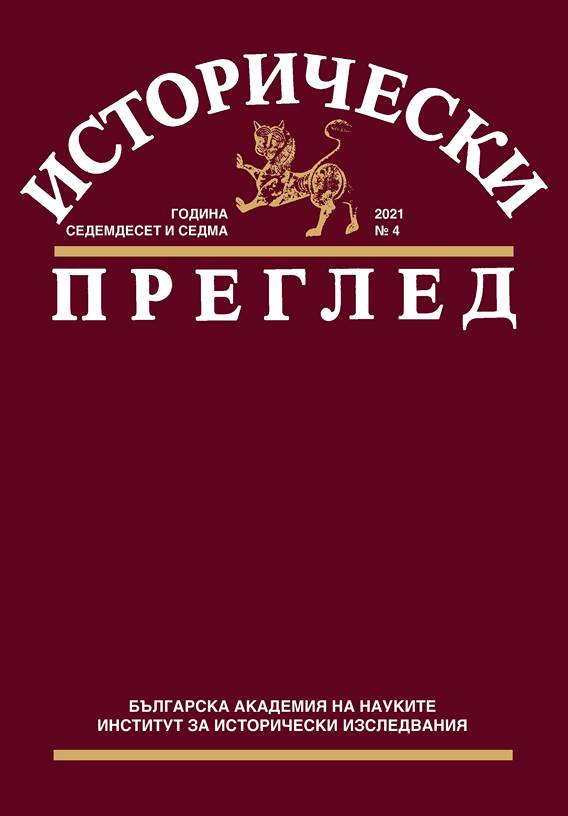Един документ, свидетелстващ за християнската етика и обществената ангажираност на българите в Oтечеството и в емиграция (Румъния) през 60-те години на XIX век
Christian Ethics and public commitment of the revival Bulgarians in the Homeland and in emigration (Romania) in the 1860s
Author(s): Ivaylo NaydenovSubject(s): History, Philosophy, Cultural history, General Reference Works, Ethics / Practical Philosophy, Social history, Modern Age, Special Historiographies:, 19th Century, The Ottoman Empire, Source Material
Published by: Институт за исторически изследвания - Българска академия на науките
Keywords: Bulgarian National Revival period; Christian ethics; charity; Bulgarian lands; Romania;
Summary/Abstract: The proposed article pays attention to a document that provides valuable information in two directions. The first one is related to the Christian moral norms typical for the period of the Bulgarian National Revival. The second direction is related to the public self-organization and charity. The mentioned document is a letter (from 1860) sent by the notables of Tarnovo to their fellow countrymen in Ottoman Bulgaria, and in Romania (Bucharest) in order to help financially and morally their fellow-citizen Mihail Vasilev. He was a guild member (a furrier) and a merchant who became very poor in 1860. Probably the reasons for his pauperization were related to the specific economic and financial situation in the Ottoman Empire after the Crimean War (1853–1856). The negative factors caused by the war forced Mihail to leave the urban setting, and settle down in Romania. It is interesting to note that the spirit of Christian ethical norms (goodness, charity, compassion) influences the content of the whole document. The notables of Tarnovo urged their compatriots in the Bulgarian lands, and in Romania to help the needy and his family (a wife and five daughters). There are also some clues about merchants, their profession and wealth; the role of basic moral principles such as honesty. Last but not least, the discussed primary source can give the opportunity to assess the importance of self-organization of Bulgarians to help each other. Their social capital (social/entrepreneurial networks and contacts based on mutual trust) played an important role in such philanthropic activities.
Journal: Исторически преглед
- Issue Year: 2021
- Issue No: 4
- Page Range: 192-209
- Page Count: 18
- Language: Bulgarian
- Content File-PDF

